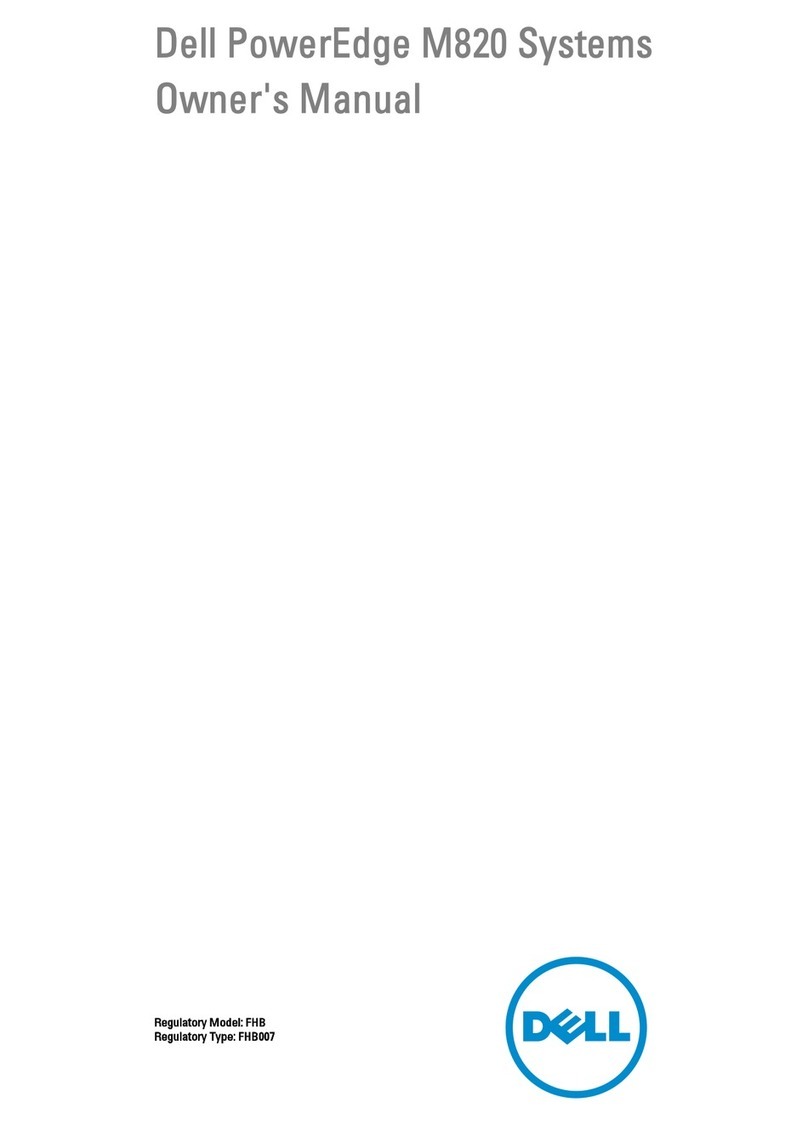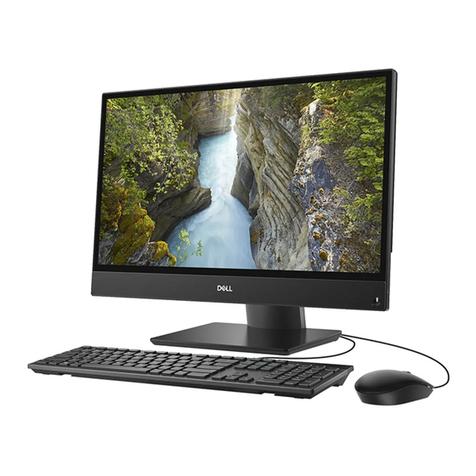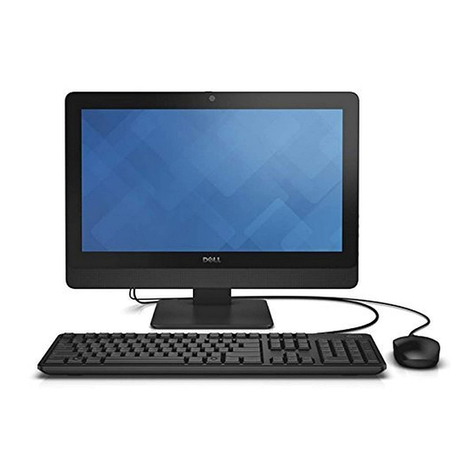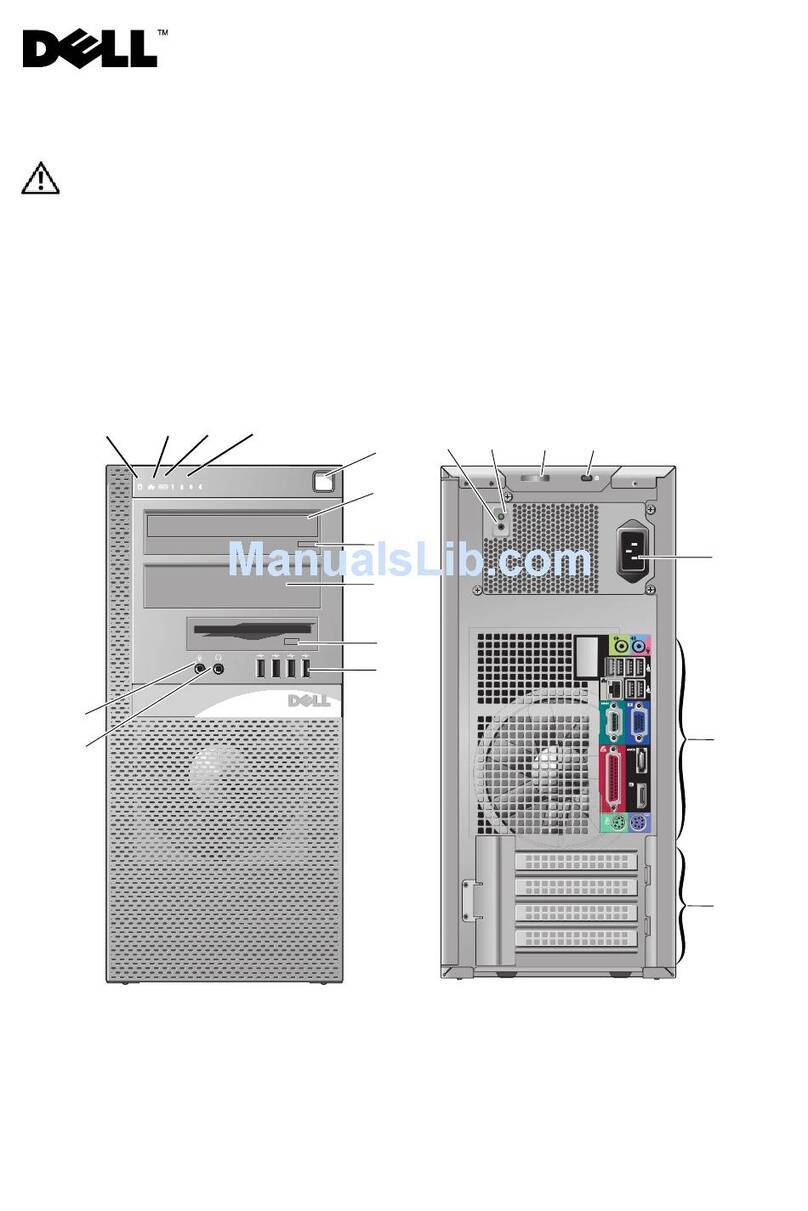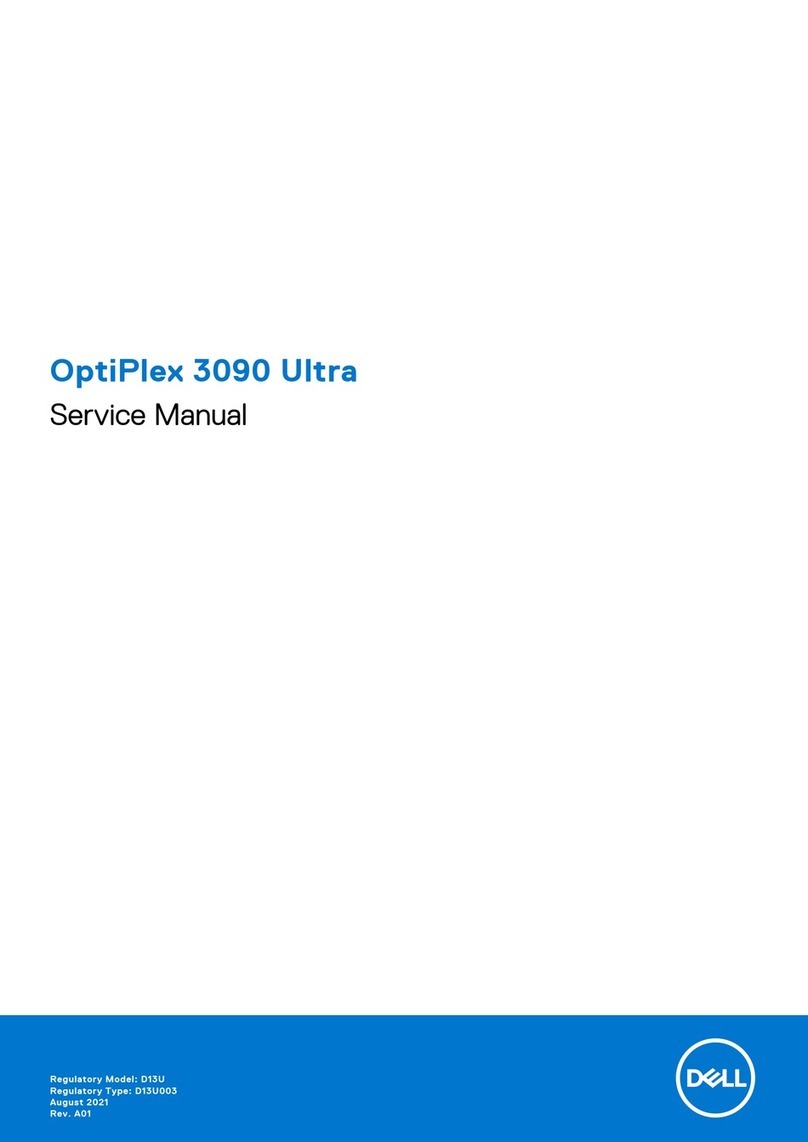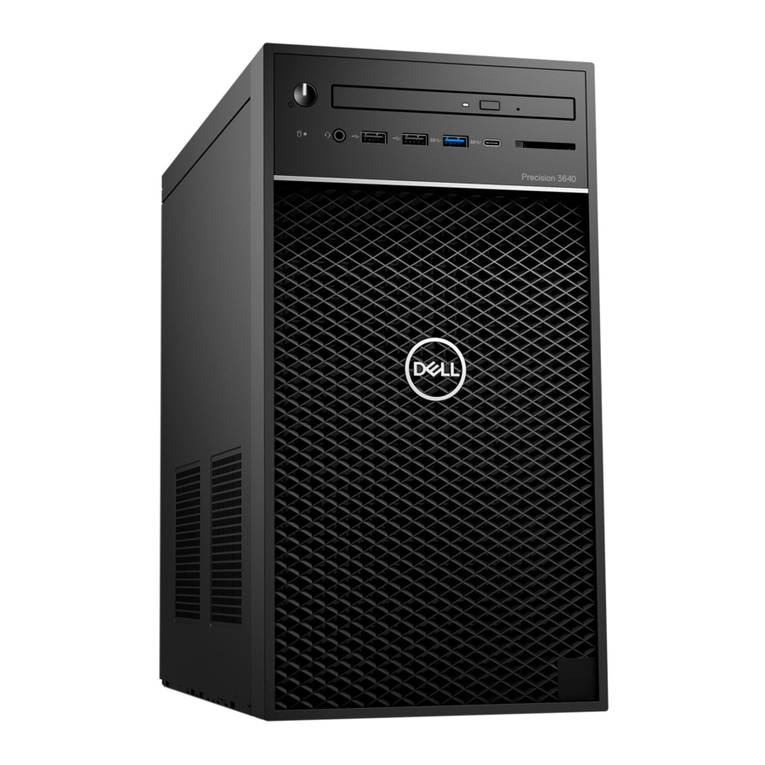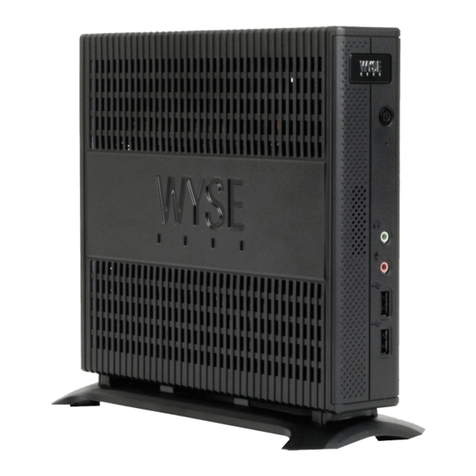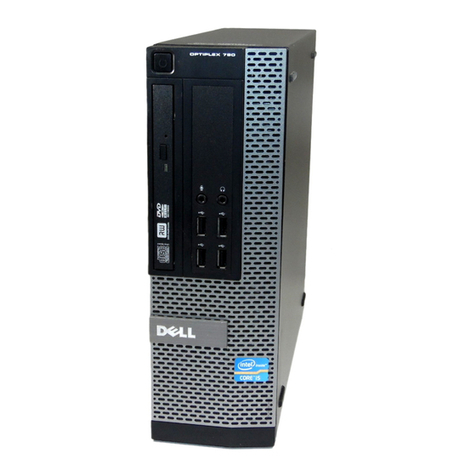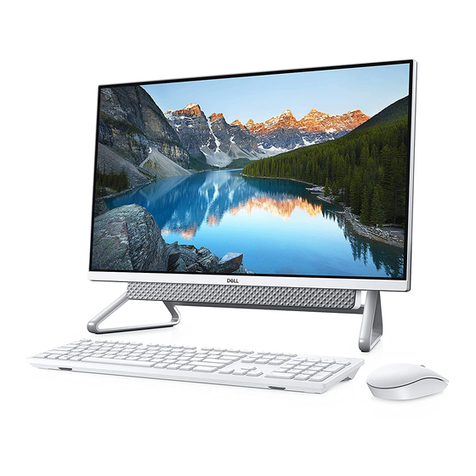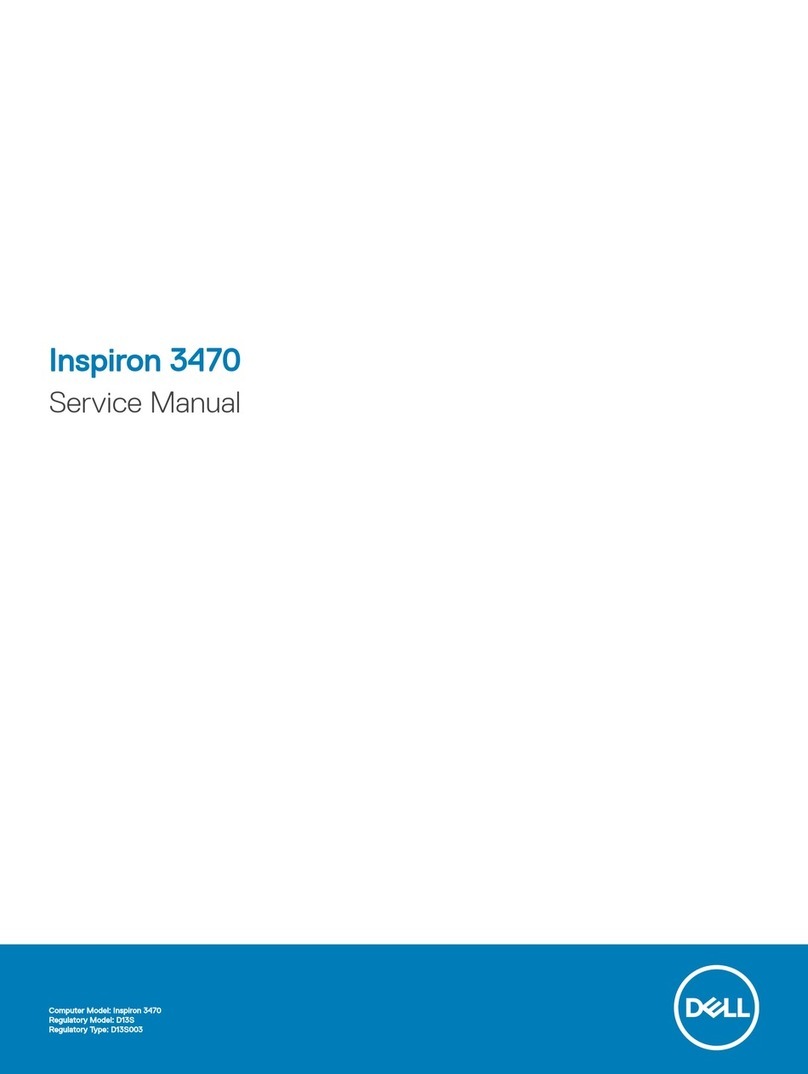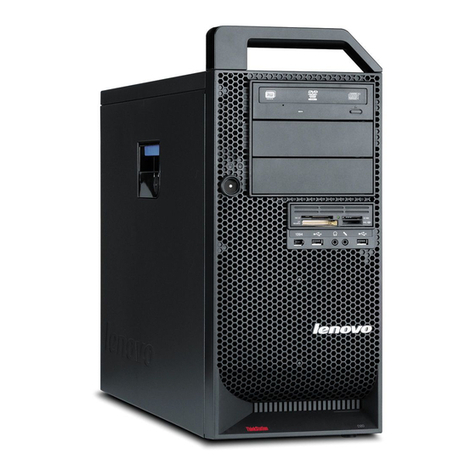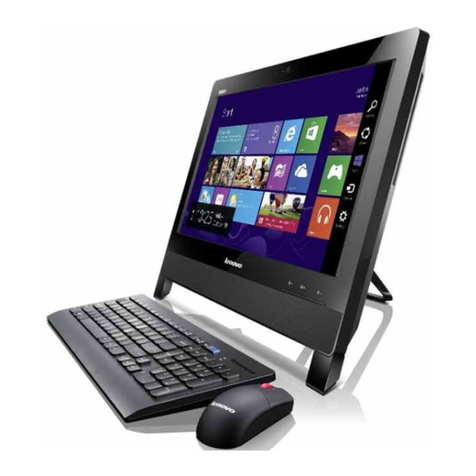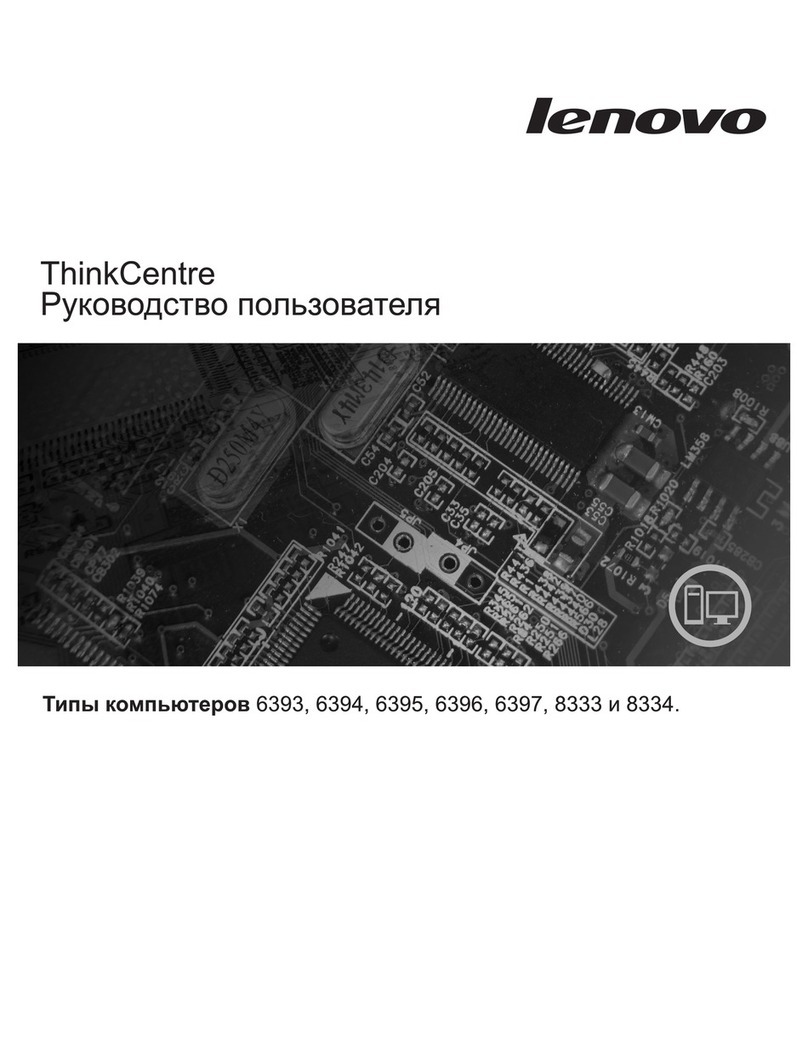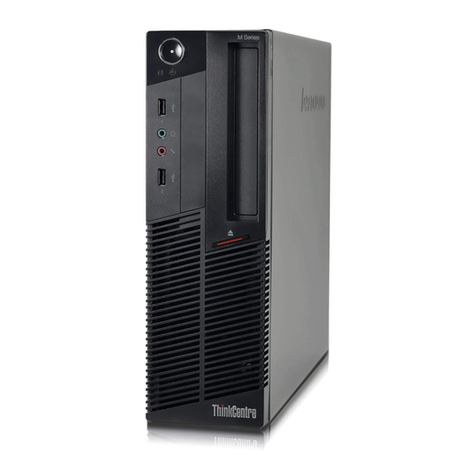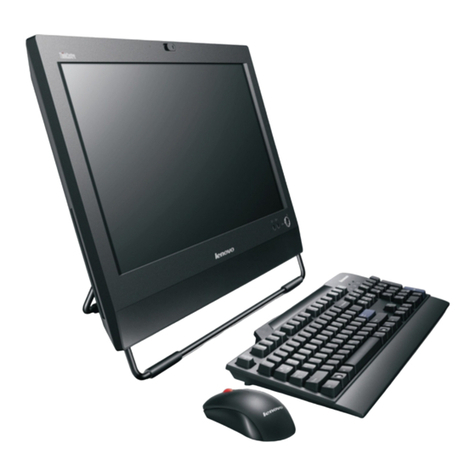
Beep Codes
Your computer might emit a series of beeps during start-up if the monitor cannot display errors or problems. This series of beeps, called a beep code, identifies
a problem. For example, beep code 1-3-1 (one possible beep code) consists of one beep, a burst of three beeps, and then one beep. This beep code tells you
that the computer encountered a memory problem.
Reseating the memory modules may correct the following beep code errors. If the problem persists, see "Contacting Dell" in your Owner's Manual for
instructions on obtaining technical assistance.
If you experience any of the following beep code errors, see "Contacting Dell" in your Owner's Manual for instructions on obtaining technical assistance.
Memory modules are detected,
but a memory failure has
occurred.
lIf two or more memory modules are installed, remove the modules (see Removing Memory), then
reinstall one module (see Installing Memory) and restart the computer. If the computer starts
normally, continue to install additional memory modules (one at a time) until you have identified a
faulty module or reinstalled all modules without error.
lIf available, install working memory of the same type into your computer (see Installing Memory).
lIf the problem persists, contact Dell (see "Contacting Dell" in your Owner's Manual).
A possible graphics card failure
has occurred.
lReseat any installed graphics cards (see Cards).
lIf available, install a working graphics card into your computer.
lIf the problem persists, contact Dell (see "Contacting Dell" in your Owner's Manual).
A possible floppy drive or hard
drive failure has occurred.
Reseat all power and data cables.
A possible USB failure has
occurred.
Reinstall all USB devices and check all cable connections.
No memory modules are
detected.
lIf two or more memory modules are installed, remove the modules (see Removing Memory), then
reinstall one module (see Installing Memory) and restart the computer. If the computer starts
normally, continue to install additional memory modules (one at a time) until you have identified a
faulty module or reinstalled all modules without error.
lIf available, install working memory of the same type into your computer (see Installing Memory).
lIf the problem persists, contact Dell (see "Contacting Dell" in your Owner's Manual).
Memory modules are detected,
but a memory configuration or
compatibility error has occurred.
lEnsure that no special requirements for memory module/connector placement exist (see
Memory).
lEnsure that the memory you are using is supported by your computer (see Memory).
lIf the problem persists, contact Dell (see "Contacting Dell" in your Owner's Manual).
A possible expansion card failure
has occurred.
1. Determine if a conflict exists by removing an expansion card (not a graphics card) and restarting
the computer (see Removing PCI and PCI Express Cards).
2. If the problem persists, reinstall the card you removed, then remove a different card and restart
the computer.
3. Repeat this process for each expansion card installed. If the computer starts normally,
troubleshoot the last card removed from the computer for resource conflicts (see "Resolving
Software and Hardware Incompatibilities" in your Owner's Manual).
4. If the problem persists, contact Dell (see "Contacting Dell" in your Owner's Manual).
Another failure has occurred.
lEnsure that all hard drive and CD/DVD drive cables are properly connected to the system board
(see System Board Components).
lIf there is an error message on the screen identifying a problem with a device (such as the
floppy drive or hard drive), check the device to make sure it is functioning properly.
lIf the operating system is attempting to boot from a device (such as the floppy drive or CD/DVD
drive); check system setup (see System Setup) to ensure the boot sequence is correct for the
devices installed on your computer.
lIf the problem persists, contact Dell (see "Contacting Dell" in your Owner's Manual).
Memory not being properly identified or used
Memory failure above address 0FFFFh
Microprocessor register failure
ROM BIOS checksum failure
Programmable interval timer
DMA initialization failure
DMA page register read/write failure
Slave DMA register failure
Master DMA register failure


